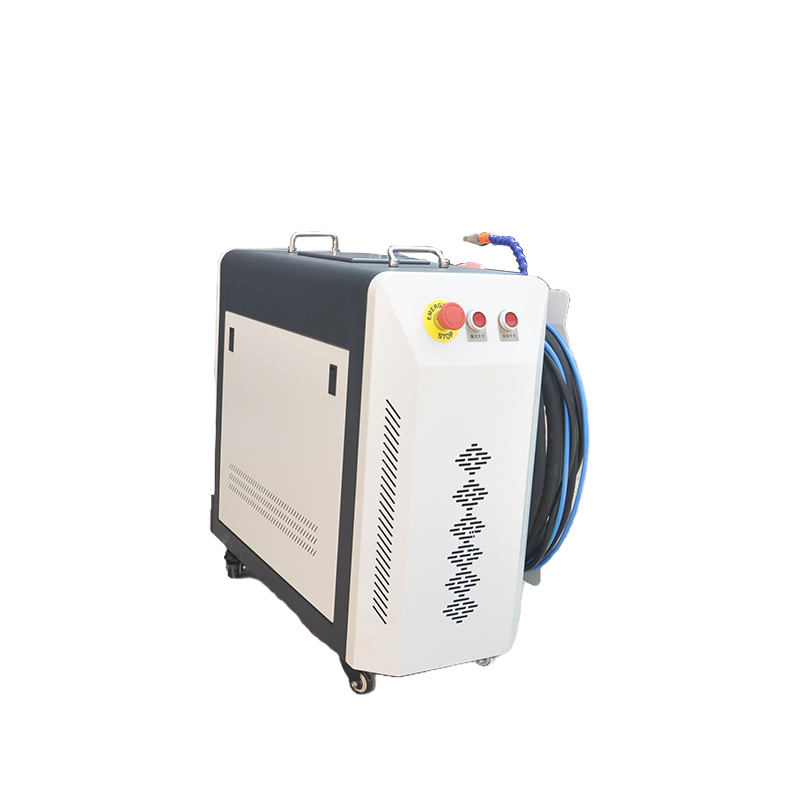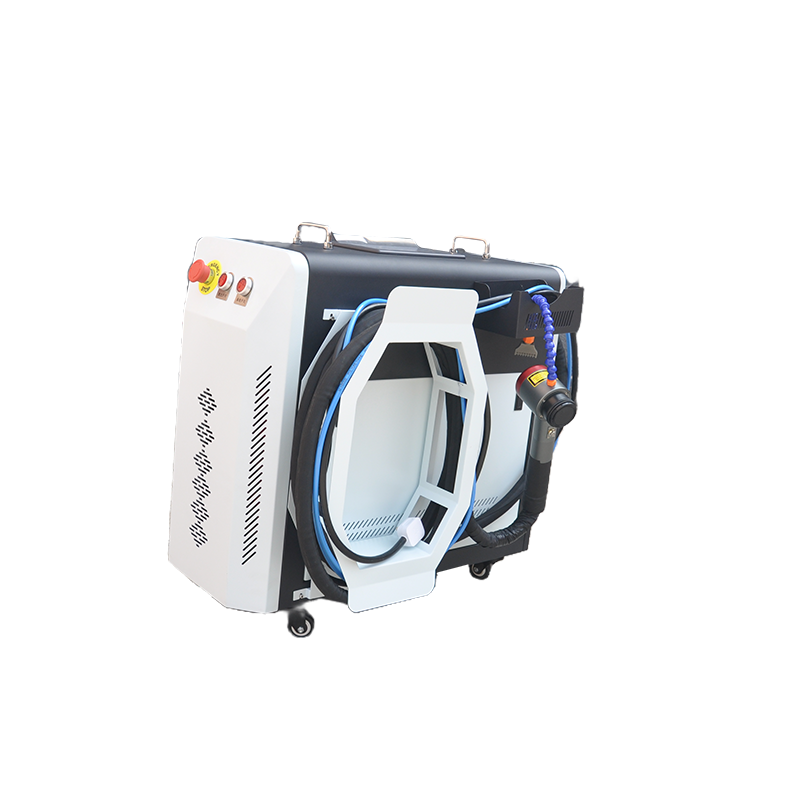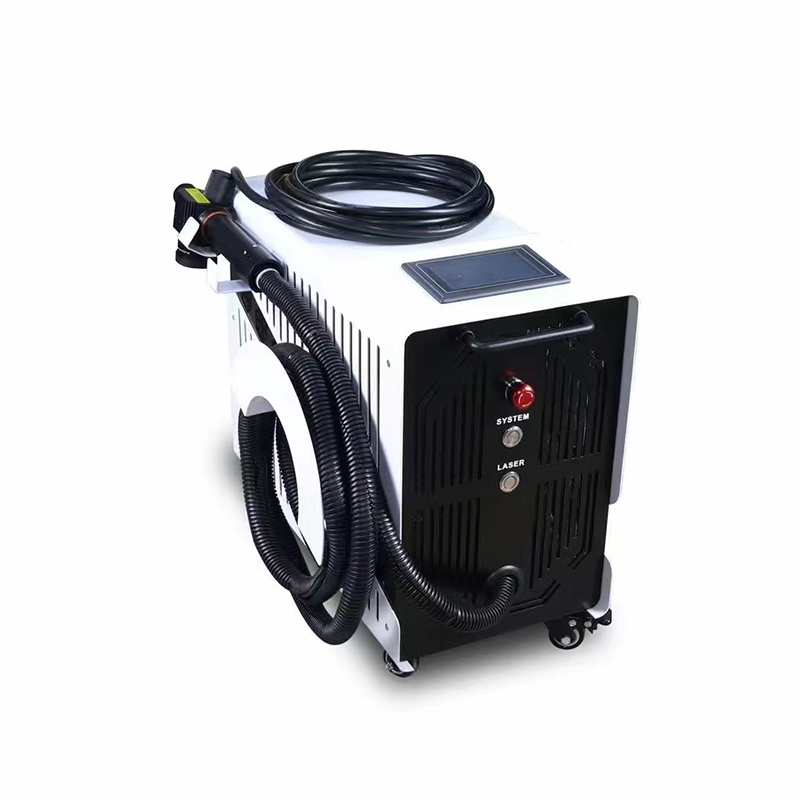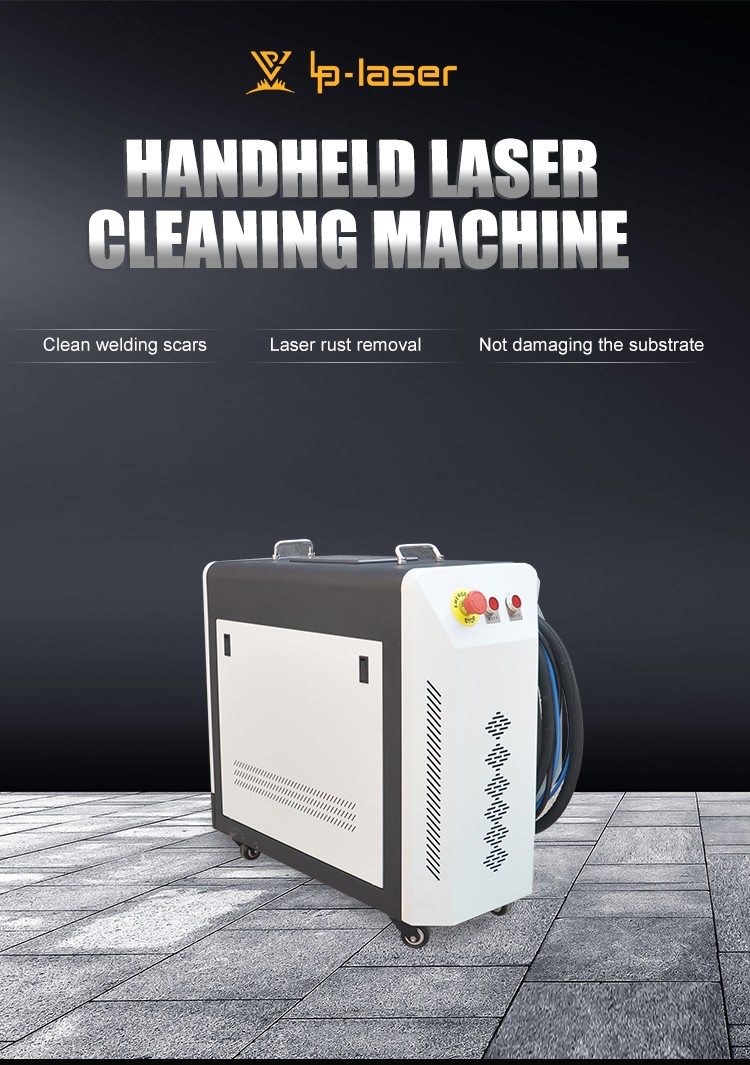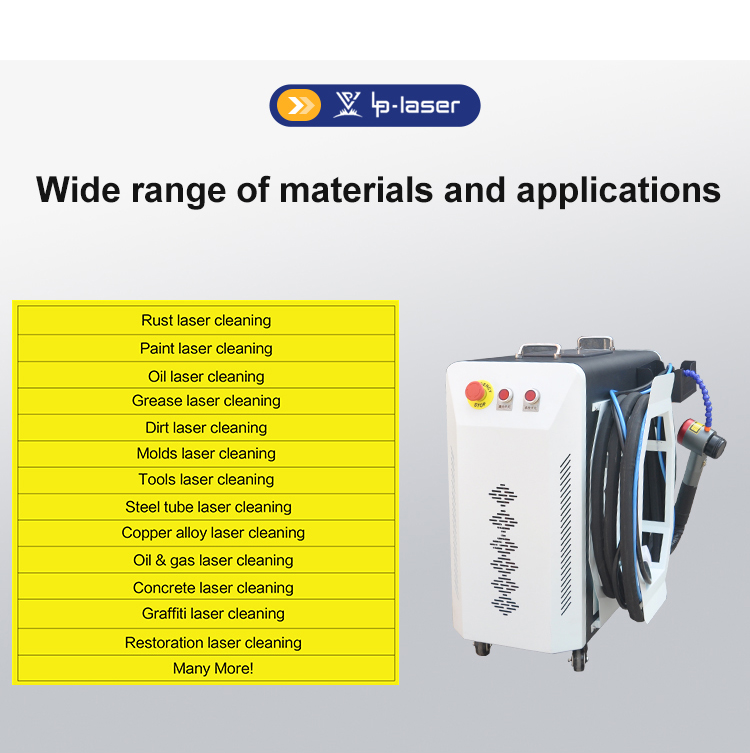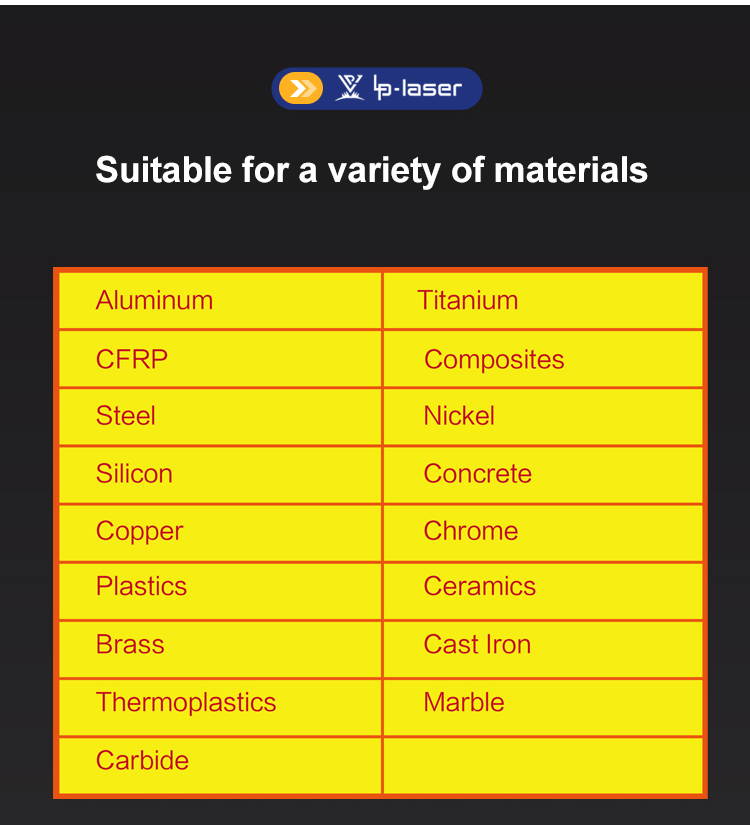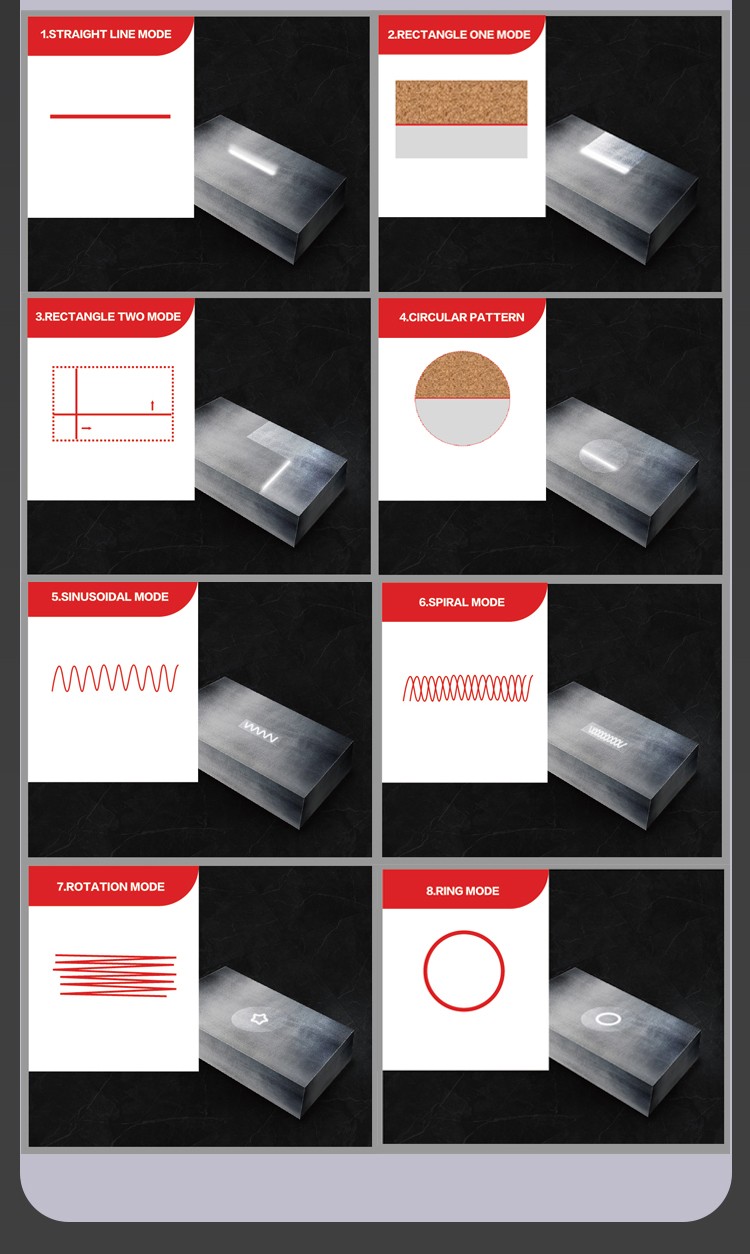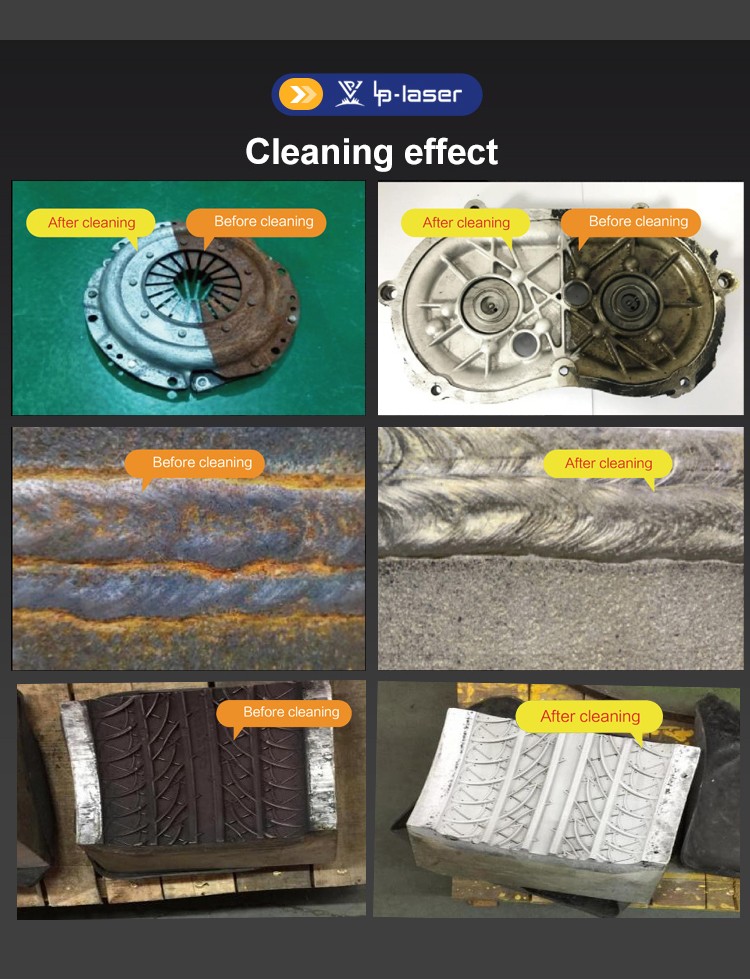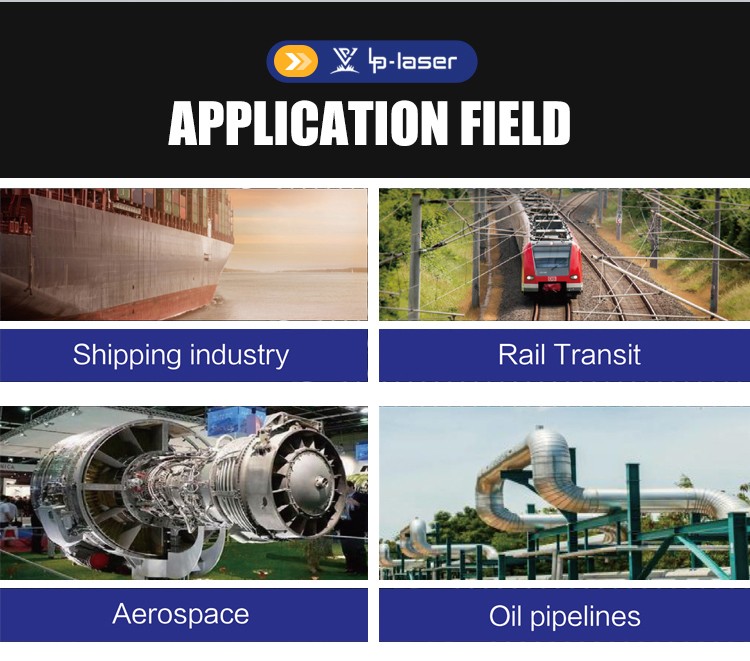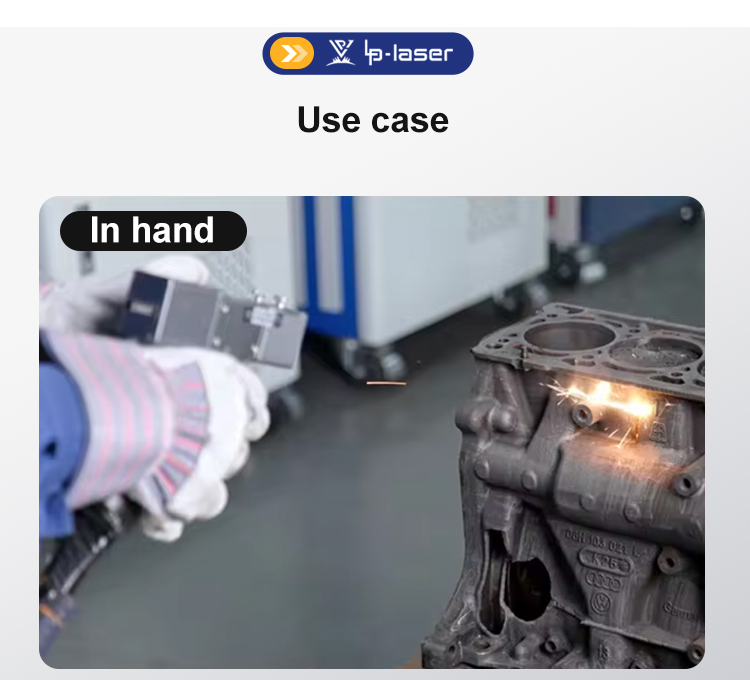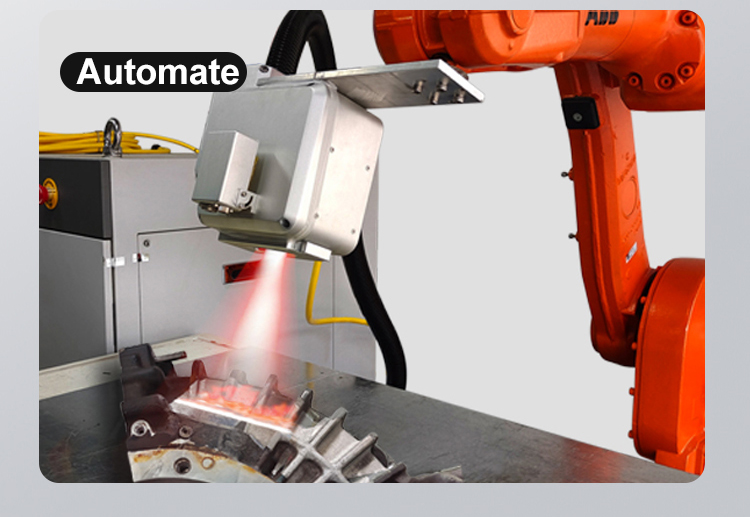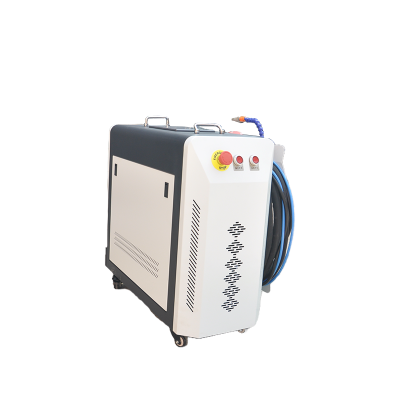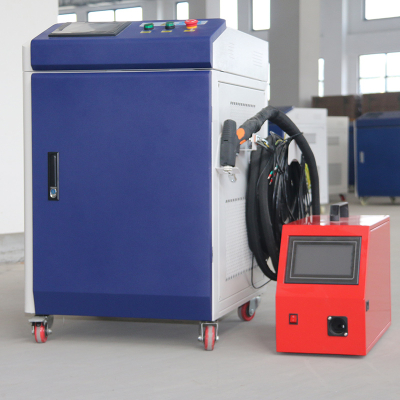High Quality Handheld Laser Cleaning Machine
1. Efficient cleaning : laser cleaning can achieve fast operation, greatly shorten the cleaning cycle, improve production efficiency .
2. Environmental protection and pollution-free : no need to use chemical solvents or cleaning solution, to avoid the problem of secondary pollution, clean down the waste volume is small and easy to store and deal with .
3. Non-destructive cleaning : laser cleaning has minimal damage to the substrate, especially suitable for the cleaning and protection of precision parts or historical relics .
4. Wide applicability : suitable for all kinds of materials and surfaces, including metal, plastic, glass, etc., widely used in manufacturing, cultural relics protection, aerospace and other fields .
5. Easy operation : modern handheld laser cleaning machine is usually equipped with advanced control system, simple operation, high stability, low maintenance cost .
6. Versatility : can be used to remove oil, rust, coating and other pollutants, suitable for a variety of complex shape and material surface cleaning .
7. Intelligent control : equipped with intelligent control system, can automatically identify the type of stains, adjust cleaning parameters, automatic operation
Hand-held laser cleaning machine is a kind of equipment that uses high energy laser beam to clean the surface of objects. It has the characteristics of high efficiency, environmental protection and non-destructive . The working principle is to irradiate the surface of the object by a laser beam of a specific wavelength, so that the dirt, rust or coating will evaporate or peel off immediately after absorbing the laser energy, forming plasma and shock wave, thus turning the pollutants into fragments and removing .
| Model: | HLC-P100W | HLC-P200W |
| Operational Voltage: | 220V±10%、50/60Hz customisable:110V、50Hzalternating current | |
| Temperature: | 5℃ ~40℃ | |
| Humidity: | 30-85% Non-Condensing | |
| Power dissipation: | ≤1000W | ≤1500W |
| Power Output: | 100W | 200W |
| Laser Type: | Fibre | |
| Maximum Pulse Energy: | 1.5mJ | |
| Pulse Frequency Range: | 1-3000kHz(Gradient adjustable) | |
| Pulse Width: | 13-500ns tunable | |
| Output Power Instability: | <5% | |
| Wavelength: | 1064 nm | |
| Head Cable Length: | 3 m | |
| Cooling: | Air cooling | |
| Focus Distance: | 160mm | 254mm |
| Scanning mode: | Dual-axis; supports 9 scanning modes | |
| Head Weight: | ≤0.9Kg | |
| Size W x H x D: | About 677mm*298mm*575mm | |
| Entire Unit Weight: | About 38Kg | |
| Packed weight: | About 50Kg | |
| Operation Mode: | Handheld/Automation | |
| Safety Class: | Level IV | |
1. How does a laser cleaner compare to traditional cleaning methods in terms of long-term cost?
A laser cleaner is highly cost-effective in the long run because it eliminates recurring costs like chemical cleaning agents, abrasive media replacement, and labor costs. While the initial investment is higher, it reduces maintenance downtime, waste disposal fees, and environmental compliance costs. For example, replacing chemical cleaning processes can save up to 50% in operational expenses annually.
2. Does a laser cleaner consume a lot of energy, increasing operational costs?
No. Modern laser cleaners are energy-efficient, using less power than many industrial machines. For instance, a typical laser cleaner operates at 5–50 kW, far lower than systems like plasma cutting or wet abrasive blasting. Additionally, its precision cleaning reduces material waste and rework, further lowering overall energy and material costs.
3. Can a laser cleaner reduce labor costs?
Yes. The laser cleaner is fully automated or semi-automated, requiring minimal operator intervention. A single operator can clean multiple parts simultaneously, reducing labor needs by 40–70% compared to manual methods like sanding or brushing. This efficiency significantly cuts hourly labor expenses in high-volume production.
4. What is the maintenance cost of a laser cleaner?
Maintenance costs are low due to the system’s solid-state design (no moving parts in the laser head). Routine upkeep includes occasional optic cleaning, laser alignment checks, and software updates, costing far less than replacing worn-out brushes, abrasives, or chemical tanks in traditional systems. Some models even offer self-diagnostic features to prevent costly breakdowns.
